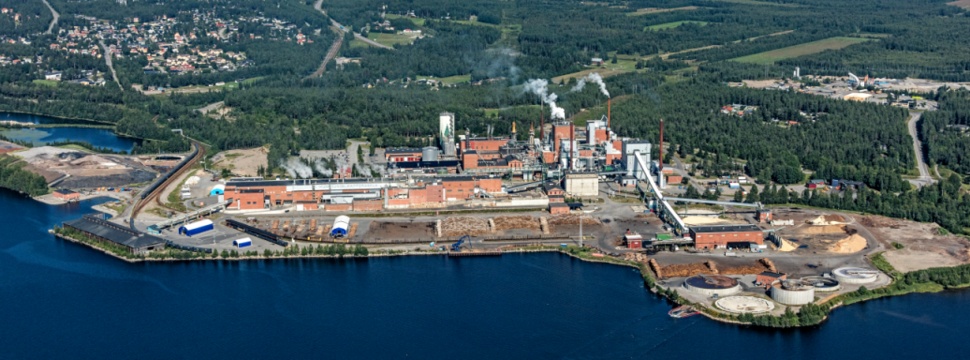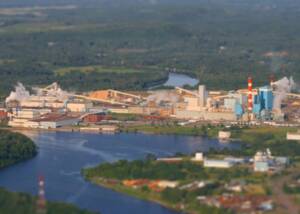Several sustainability improvements when SCA invests in Munksund's paper mill
News General news
SCA to invest SEK 150 million in new processing equipment at Munksund paper mill in an initiative set to reduce environmental impact.

“We will increase our production of pine oil, which is used to produce biofuels. At the same time, we’ll reduce energy consumption,” says Jens Riglert, site manager at Munksund’s paper mill.
Pine oil is a by-product of the production of pulp and originates from the wood used. The chemical industry has long used pine oil to produce a wide variety of products including paint and detergents, but now it is also a sought-after raw material for producing biofuels.
“Pine oil is key to the transition to a fossil-free society. It can replace fossil fuels and thus help reduce global warming. Demand is increasing in Sweden and globally, as interest in biofuels increases,” says Riglert.
The investment in Munksund consists of new equipment for treating black liquor, which is an important step in the chemical recycling process after pulp has been boiled.
“This is a reinvestment we are making, as existing equipment will soon become obsolete. Due to new technology now available, our processes will be more efficient, while at the same time enabling us to achieve several sustainability benefits. ”
Among other things, the investment will mean that the so-called soaping effect will be greater, which means that it will be possible to extract a greater proportion of the soap contained in black liquor. This is important because the soap is used to make pine oil. The amount of soap extracted will increase by 24 per cent.
“The soap that we are unable to extract from the lye will be incinerated, with the heat being used to produce energy for the mill, so it is not wasted. But making pine oil from the soap is better, in terms of sustainability and financial performance,” says Riglert, and continues:
“This is a great example of how SCA is always focused on the efficient use of resources and how we always ensure that we use the entire tree in the very best way. We’re increasing the degree of refinement of our by-products and at the same time contributing to the transition from fossil fuels to renewables.”
Another major advantage with the investment is that it will reduce energy consumption at the paper mill.
“The process will be more energy efficient as we will need to use less energy for the evaporation process. Energy consumption will be reduced by 1.4 per cent,” says Riglert.
The investment will be made in two phases. Phase one will start in the autumn of 2023, while phase two will be made in the autumn of 2024.
“Financial performance and sustainability go hand-in-hand with this investment. We ensure continued stable and efficient pulp production, while at the same time contributing to reduced climate impact by increasing the raw material base for the production of biofuels,” says Riglert.










